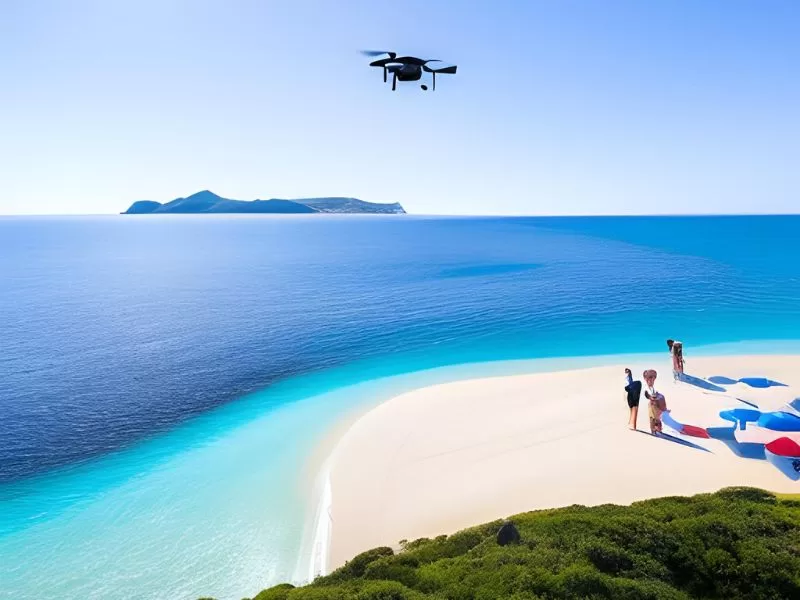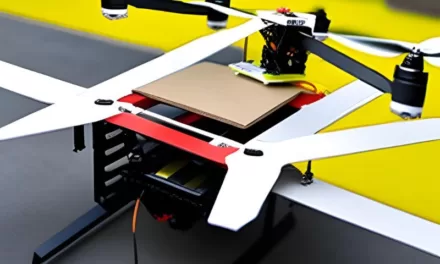Drones vs Privacy

Drones have become increasingly popular in recent years, revolutionizing various industries and offering exciting possibilities. However, with the rise of drones comes a range of concerns, particularly related to privacy. Understanding the potential implications and finding a balance between innovation and protecting personal privacy is crucial. In this article, we will delve into the world of drones, explore the legal framework surrounding their use, examine privacy risks and concerns, and provide practical tips to safeguard your privacy.
Understanding Drones
Drones, also known as unmanned aerial vehicles (UAVs), are aircraft operated remotely or autonomously without an onboard human pilot. They come in various shapes and sizes, ranging from small consumer drones to large commercial or military drones. Consumer drones are commonly used for recreational purposes, aerial photography, or even package deliveries. Meanwhile, commercial drones find applications in industries like agriculture, filmmaking, and surveying. It is essential to comprehend the different types of drones and their uses to better understand the privacy implications associated with their operations.
Legal Framework: Drones vs Privacy
Operating a drone involves compliance with a set of regulations and guidelines to ensure safety and respect for privacy. The Federal Aviation Administration (FAA) in the United States establishes rules for drone operation, including registration requirements, airspace restrictions, and flight altitude limitations. Moreover, local laws and regulations may further impose restrictions on drone usage, such as no-fly zones near airports, stadiums, or sensitive government installations. Understanding these regulations is vital for responsible drone pilots and operators.
Privacy Risks and Concerns: Drones vs Privacy
The use of drones raises valid concerns regarding privacy infringement. One of the primary worries is unauthorized surveillance, where drones equipped with cameras can potentially invade personal privacy by capturing images or videos without consent. Additionally, drones can encroach upon personal space, causing discomfort and anxiety. The collection and storage of data obtained by drones pose another risk, as sensitive information could potentially be mishandled or fall into the wrong hands. Misuse of drone footage for harassment or illegal activities is another concern that demands attention.
Balancing Privacy and Innovation
The delicate balance between privacy and technological innovation is a complex challenge. While drones offer numerous benefits, it is crucial to develop and adopt privacy-enhancing technologies to address these concerns. For instance, implementing features like geofencing, which uses GPS coordinates to establish no-fly zones, can help prevent unauthorized drone access to private properties. Furthermore, industry self-regulation and ethical practices can play a significant role in minimizing privacy risks associated with drones.
Safeguarding Your Privacy: Drones vs Privacy
To protect your privacy in the age of drones, it is essential to take certain precautions. Maintaining physical privacy involves being mindful of your surroundings and ensuring your property is secure. For instance, using curtains or blinds can help prevent unwanted drone surveillance. Protecting digital privacy requires being cautious about sharing personal information online and utilizing encryption and strong passwords for devices and networks. Additionally, educating yourself about drone technology and staying updated on relevant regulations can help you make informed decisions regarding your privacy.
Legal Recourse and Reporting: Drones vs Privacy
If you suspect your privacy has been violated by a drone, it is important to report the incident. Contacting local law enforcement or the FAA can help initiate an investigation and potentially hold the responsible party accountable. Depending on the severity of the infringement, legal remedies such as civil lawsuits may be pursued to seek compensation for damages. Seeking help from authorities ensures that privacy violations involving drones are taken seriously and appropriate action is taken.
Public Perception and Awareness
The portrayal of drones in media plays a significant role in shaping public perception. Media coverage often focuses on negative incidents, fueling concerns and apprehensions about drones. It is crucial to promote accurate and balanced reporting that educates the public about both the benefits and potential risks associated with drones. Public awareness campaigns and education initiatives can help dispel misconceptions and provide individuals with the necessary information to understand the privacy implications surrounding drones.
The Future of Drones and Privacy
As drone technology continues to evolve, it is vital to consider the future implications for privacy. Technological advancements like artificial intelligence and facial recognition software integrated into drones raise additional concerns. However, these developments also present opportunities for addressing privacy concerns. Striking a balance between innovation and privacy is an ongoing process, requiring public dialogue, engagement, and collaboration between stakeholders to shape a future where drones and privacy coexist harmoniously.
Conclusion
In the fast-paced world of drones, where innovation and technological advancements are rapidly transforming various industries, it is crucial to recognize the importance of privacy. Understanding the legal framework, being aware of privacy risks, and taking proactive measures to safeguard personal privacy are essential for responsible drone use. By promoting a balanced approach that respects privacy while embracing the potential of drones, we can navigate the challenges posed by this transformative technology and ensure a future that respects both innovation and individual privacy.


